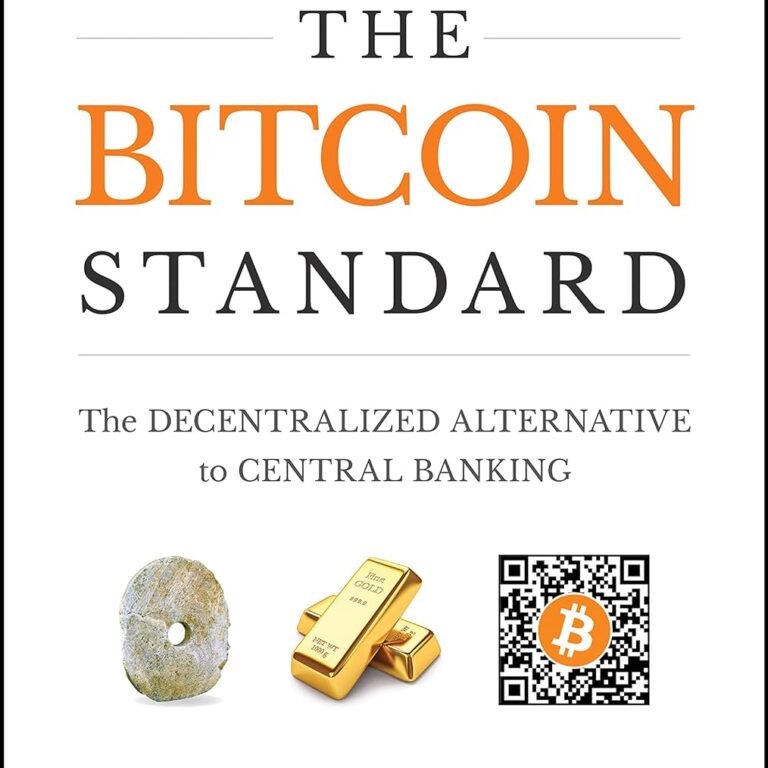Welcome Middle Child Money Crew! Today we are tackling something that you have seen buzzing around online. Today we will hopefully shed light on something that may be a point of confusion.
Cryptocurrency has been making waves in the financial world, and it’s no surprise that many people are curious about this digital form of money. If you’re new to the world of crypto, understanding the basics can seem daunting. However, with a little guidance, you can navigate this exciting realm with confidence. In this comprehensive article, we’ll break down the fundamentals of cryptocurrency, exploring its origins, how it works, and its potential impact on the future of finance
What is Cryptocurrency?
Cryptocurrency is a digital or virtual currency that uses cryptography for secure financial transactions. It operates independently of a central bank or government, relying instead on a decentralized network of computers to validate and record transactions on a public ledger called a blockchain.
Unlike traditional fiat currencies, cryptocurrencies are not physical; they exist solely in digital form. The first and most well-known cryptocurrency is Bitcoin, which was introduced in 2009 by an anonymous individual or group using the name Satoshi Nakamoto.
Source: Coin Bureau
How Does Cryptocurrency Work?
Cryptocurrencies are a revolutionary digital form of currency that utilize blockchain technology, a secure and decentralized digital ledger, to record and verify all transactions. This blockchain network is maintained by a distributed network of computers, each of which plays a crucial role in validating and adding new transactions to the blockchain, ensuring its immutability and transparency.
To participate in the cryptocurrency ecosystem, individuals require a digital wallet, which is a software program that securely stores their private and public keys. These keys serve as the unique identifiers that allow users to send, receive, and manage their digital assets. The private key acts as a password, granting the user exclusive access to their cryptocurrency funds, while the public key functions as the address to which others can send digital payments.
The sources provided, SecureMac and Oswego.edu, offer comprehensive information on the fundamental workings of cryptocurrencies and the essential role of digital wallets in this innovative financial landscape. By understanding the underlying blockchain technology and the importance of private and public keys, individuals can navigate the world of cryptocurrencies with greater confidence and security.
Mining and Consensus Mechanisms
New cryptocurrency units are created through a process called mining, where powerful computers solve complex math problems to validate transactions and add them to the blockchain. Miners are rewarded with newly minted coins for their efforts, encouraging them to contribute computing power to the network.
Different cryptocurrencies use different methods to validate transactions and maintain the network’s integrity. The two most common are:
- Proof-of-Work (PoW): Used by Bitcoin and many others, PoW requires miners to solve complex computational puzzles to validate transactions and add new blocks to the blockchain. This process is energy-intensive and has been criticized for its environmental impact.
- Proof-of-Stake (PoS): A more energy-efficient alternative to PoW, PoS selects validators based on the amount of cryptocurrency they hold rather than computational power. This reduces the energy consumption and environmental impact of the network.
Why Use Cryptocurrency?
Cryptocurrencies offer several potential advantages over traditional fiat currencies:
- Decentralization: Cryptocurrencies operate on decentralized networks, meaning they are not controlled by any central authority or government. This can provide greater financial freedom and independence.
- Transparency: All transactions on a cryptocurrency blockchain are publicly visible, promoting transparency and accountability.
- Security: Cryptocurrencies use advanced cryptography to secure transactions and prevent counterfeiting or double-spending.
- Lower Fees: Cryptocurrency transactions often have lower fees compared to traditional banking or money transfer services.
- Global Accessibility: Cryptocurrencies can be accessed and used by anyone with an internet connection, regardless of their location or access to traditional banking services.
Risks and Challenges of Cryptocurrency
While cryptocurrencies offer potential benefits, they also come with risks and challenges:
- Volatility: Cryptocurrency markets are highly volatile, with prices fluctuating rapidly and unpredictably.
- Regulatory Uncertainty: The legal and regulatory landscape surrounding cryptocurrencies is still evolving, creating uncertainty for users and businesses.
- Security Risks: Cryptocurrency wallets and exchanges have been targeted by hackers, leading to the theft of funds.
- Lack of Adoption: Despite growing interest, widespread adoption of cryptocurrencies as a mainstream payment method remains limited.
- Environmental Impact: Some consensus mechanisms, like PoW, have been criticized for their high energy consumption and environmental impact.
Getting Started with Cryptocurrency
If you’re interested in exploring the world of cryptocurrency, here are some steps to get started:
- Learn and Research: Educate yourself about cryptocurrencies, blockchain technology, and the risks and potential rewards involved. Resources like CoinDesk , CoinBureau, and Investopedia can provide valuable information for beginners.
- Choose a Cryptocurrency: Decide which cryptocurrency you want to invest in or use. Bitcoin and Ethereum are popular choices for beginners, but there are many other options to explore.
- Get a Wallet: Set up a secure digital wallet to store your cryptocurrency. Hardware wallets, like Ledger or Trezor, are considered the most secure option for storing larger amounts of cryptocurrency.
- Buy Cryptocurrency: You can purchase cryptocurrency through online exchanges like Coinbase, Kraken, or Binance. Be sure to research and choose a reputable exchange.
- Stay Informed: The cryptocurrency market is constantly evolving, so it’s essential to stay up-to-date with news, developments, and best practices for security and storage.
The Future of Cryptocurrency
Attention here Middle Child Money Crew! The future of cryptocurrency is uncertain, many experts believe it has the potential to revolutionize the financial system and promote greater financial inclusion globally, BUT remember the risks and the volatility. As blockchain technology continues to mature and gain mainstream adoption, we may see cryptocurrencies play a more significant role in everyday transactions, investments, and financial services.
However, the widespread adoption of cryptocurrencies will likely depend on addressing challenges such as regulatory uncertainty, scalability, and environmental impact. Additionally, the development of central bank digital currencies (CBDCs) by governments and central banks could potentially compete with or complement existing cryptocurrencies.
More Research!
There are several highly recommended books that can help beginners understand cryptocurrency and blockchain technology. Middle Child Money encourages you in your financial journey. We believe learning is core to that.
“The Bitcoin Standard” by Saifedean Ammous is considered one of the most influential books on Bitcoin. It explores the history of money and how Bitcoin fits into that narrative as a decentralized alternative to central banking.
“The Basics of Bitcoins and Blockchains” by Antony Lewis is praised as an excellent introduction that explains cryptocurrencies, blockchain, how they work, their potential impact, risks, and regulations in an easy-to-understand manner.
“Mastering Bitcoin” by Andreas M. Antonopoulos is a more technical book that provides in-depth knowledge about Bitcoin and open blockchain technology, suitable for those wanting to participate in the “internet of money.”
Conclusion
Cryptocurrency is a captivating and rapidly evolving space that presents both intriguing possibilities and thought-provoking challenges. While the intricacies of this innovative financial technology may initially appear complex, delving into the fundamental workings of cryptocurrencies and exploring their potential advantages and drawbacks can empower individuals to navigate this new frontier with confidence and discernment.
At its core, cryptocurrency leverages cryptographic principles and distributed ledger technology to facilitate secure, decentralized, and transparent transactions, offering an alternative to traditional fiat currency systems. This revolutionary approach to finance holds the promise of increased accessibility, reduced transaction fees, and enhanced privacy for users. However, the inherent volatility and speculative nature of cryptocurrency markets also introduce unique risks that require careful consideration.
As with any investment or financial decision, it is crucial to approach the world of cryptocurrency with a diligent and well-informed mindset. Thorough research, staying up-to-date with the latest developments, and exercising prudent risk management are essential steps in navigating this dynamic landscape. By doing so, individuals can potentially harness the transformative power of cryptocurrency to diversify their financial portfolios and capitalize on the exciting opportunities that this emerging field presents.
Ultimately, cryptocurrency represents a fascinating and rapidly evolving frontier in the world of finance, one that holds the potential to disrupt traditional financial systems and empower individuals with new avenues for wealth creation and financial empowerment. With the right knowledge, approach, and caution, cryptocurrency can be a rewarding and transformative addition to one’s financial journey.
Disclaimer
The content provided on Middle Child Money is for informational and entertainment purposes only. We are not licensed financial advisors, and the information shared on this blog should not be considered professional financial advice. We encourage all readers to consult with a licensed financial professional to discuss their individual financial situations and needs. The opinions expressed on this blog are solely those of the author, Nate Bradley, and do not reflect the views of any affiliated organizations. Middle Child Money cannot be held liable for any actions taken based on the information provided on this site.














